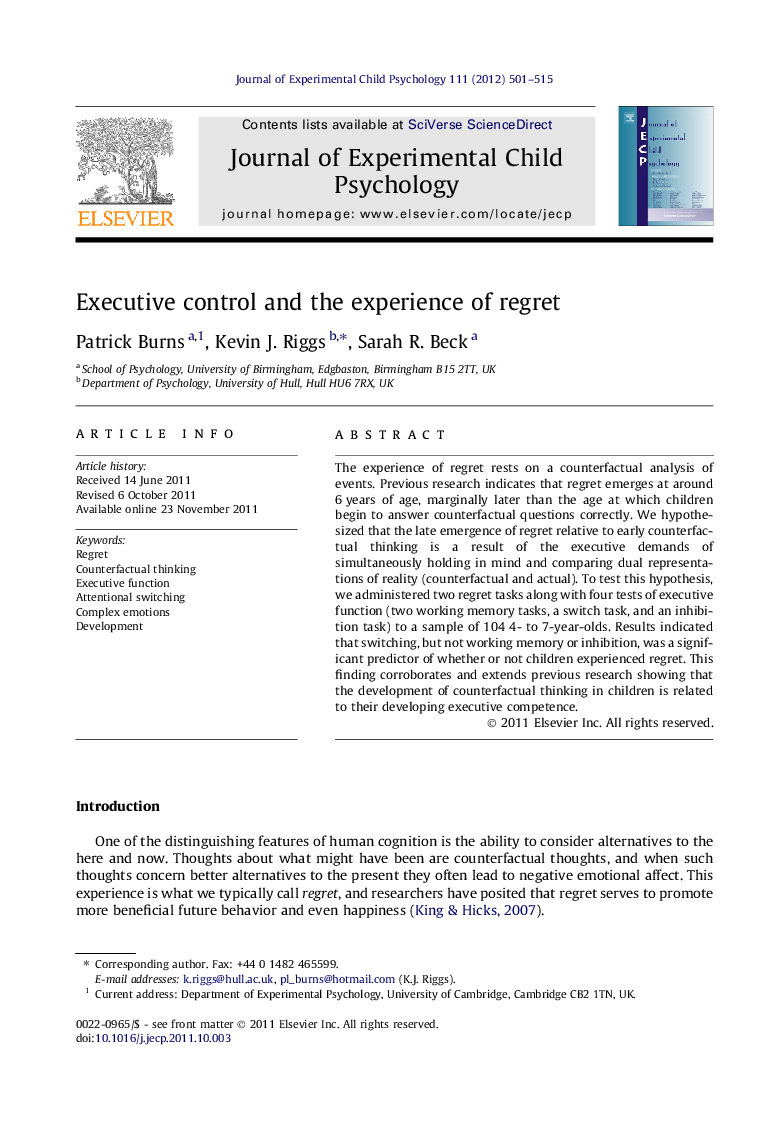| Article ID | Journal | Published Year | Pages | File Type |
|---|---|---|---|---|
| 918246 | Journal of Experimental Child Psychology | 2012 | 15 Pages |
The experience of regret rests on a counterfactual analysis of events. Previous research indicates that regret emerges at around 6 years of age, marginally later than the age at which children begin to answer counterfactual questions correctly. We hypothesized that the late emergence of regret relative to early counterfactual thinking is a result of the executive demands of simultaneously holding in mind and comparing dual representations of reality (counterfactual and actual). To test this hypothesis, we administered two regret tasks along with four tests of executive function (two working memory tasks, a switch task, and an inhibition task) to a sample of 104 4- to 7-year-olds. Results indicated that switching, but not working memory or inhibition, was a significant predictor of whether or not children experienced regret. This finding corroborates and extends previous research showing that the development of counterfactual thinking in children is related to their developing executive competence.
► Executive function and the experience of regret were measured in 4-to-7-year-olds. ► Task switching predicted the ability of children to experience of regret. ► Children who were better at task switching were more likely to experience regret. ► Working memory was unrelated to the experience of regret.
